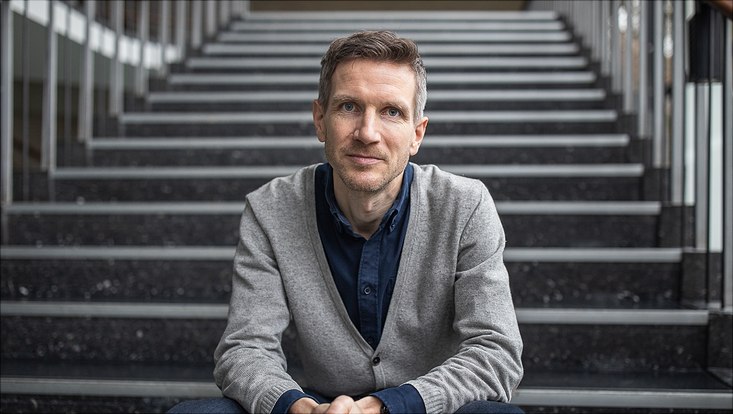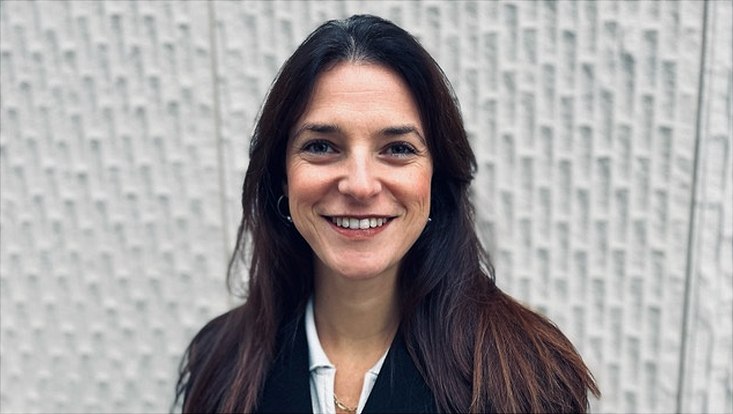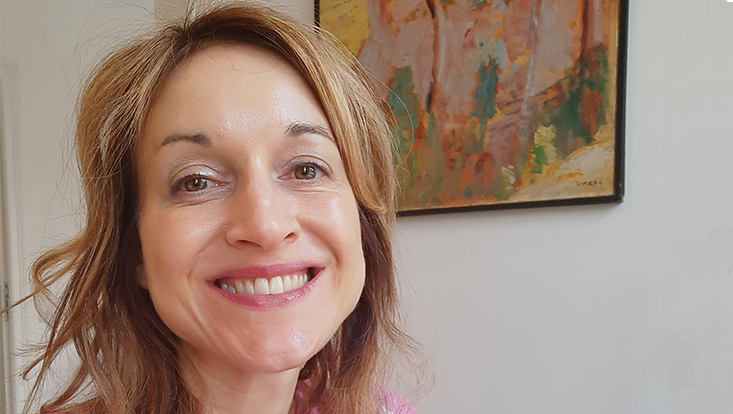Welcome aboard!“We need to better understand how disinformation is spread through language, images, and videos.”
11 December 2024, by Viebahn/Red.

Photo: University of Hamburg/Göttling
Every year, the University of Hamburg welcomes numerous new researchers. This series introduces them and their areas of research. This time: philosophy Prof. Dr. Emanuel Viebahn
Prof. Dr. Emanuel Viebahn joined the Faculty of Humanities in the winter semester, having previously worked at Freie Universität Berlin. He is a professor of philosophy with a focus on the philosophy of language.
My research area in 3 sentences:
My research focuses on linguistic meaning; on the actions we execute with our utterances; and on applying my research to philosophical problems and social phenomena. Currently, I am working primarily on types of semantic variability (how does the content of an expression depend on the context of the utterance?); on dishonest communication (how do I distinguish a lie from a misleading utterance? Is the difference morally relevant?); on the philosophy of fiction (what type of actions do we execute when we tell stories?); and on the relationship between communication with language and communication with images (can I use a picture to make a claim?).
This is how I explain my research to my family:
Lying and misleading is a good example for the way various areas in the philosophy of language go together. These phenomena are familiar to us from our daily lives, but it isn’t always easy to describe them. They also raise difficult moral questions: Is it always bad to make a dishonest remark? And, if so, is a misleading remark sometimes not as bad as a lie?
To illuminate these questions, we first have to deal with a practical question: How do lying and misleading differ? Is the crucial difference that when we lie, we express content known to be false literally, that is, is the lie the words we use? In turn, we need to know the meaning of the words used, and this brings us to semantics.
In Hamburg, the city and the University, I am looking forward to:
Hamburg has excellent coffee! This is a good indicator for a generally high standard of living and it reflects my experiences on the Elbe so far. I am already excited about the University, the Department of Philosophy, and the students and I am looking forward to pondering together in this stimulating environment.
These are my plans at the University of Hamburg:
In my research, I often cooperate with other disciplines. And Hamburg provides a good opportunity for this, because, for example at the Institute for German Language and Literature and at the Institute of Media and Communications, related questions are being addressed. I am already forging initial cooperation, for example, on visual communication.
This is why students should attend my courses:
The philosophy of language is a multifold discipline where there is still a lot to discover. On the one hand, language is a fascinating field of study. We use language daily but it is astonishingly difficult to say what we actually do with it or should. On the other hand, the language of philosophy provides helpful tools for solving philosophical problems, and these can be used in almost every area of philosophy.
Reaching out to the world: I work with the following international and federal institutions and universities:
One example of international cooperation is the Philosophy of Language Association (PLA) that I founded 3 years ago with 6 colleagues from the United States, Great Britain, and Germany. For conferences, we most recently met in Amherst in Massachusetts and in Berlin. I look forward to hosting a PLA conference in Hamburg soon and to showing other philosophers of language the best specialty coffees.
My research is important to society, or to help resolve the following issues:
Because language is important for society, the same is true for the philosophy of language. Think, for example, about disinformation in political discourse. It is clear that something needs to be done here. But do to so, we first need to better understand how disinformation is spread through language, images, and videos. I hope that my research can make a small contribution to this.


